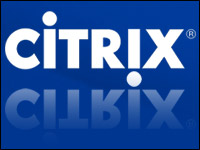
After weeks of speculation in the Linux community, Dell made its open source plans official Wednesday, confirming rumors that it will begin selling select desktops and notebooks with Linux operating systems preinstalled. Dell said the decision was made as a result of feedback from customers on its IdeaStorm Web site.
“Dell has heard you, and we will expand our Linux support beyond our existing servers and Precision workstation line,” the company posted on its “Dell in Action” IdeaStorm blog. “Our first step in this effort is offering Linux preinstalled on select desktop and notebook systems.”
The No. 2 PC vendor said it will provide an update in the coming weeks that will include “detailed information on which systems we will offer, our testing and certification efforts, and the Linux distribution(s) that will be available. The countdown begins today.”
Dell currently ships its PCs preinstalled with Microsoft Windows but offers servers running Linux.
Community Brainstorm
Dell launched its IdeaStorm Web site on Feb. 16, some two weeks after company founder Michael Dell returned to helm at the one-time PC market leader. The company presented the site as a way for customers to share ideas and experiences “directly with their peers and the company,” it said when the site debuted.
“We are at our best when we are hearing directly form our customers,” Michael Dell said during the launch event in Texas. “We listen, learn and then improve and innovate based on what our customers want. It’s one of the real advantages of being a direct company.”
IdeaStorm users have submitted 3,472 ideas, with pre-installed Linux software ranking among the top recommendations, according to Dell. The idea had gained so much traction that on March 13 the company posted a response to the IdeaStorm community: “Linux — We’re listening … Now tell us more,” in which Dell announced it would conduct a survey until March 23 to gauge users’ favorite Linux distributions, and preferred support methods.
“Interest in open source solutions like Linux on Dell platforms has come through loud and clear,” read a message the company posted on the blog. “Many of you have suggested a survey to help Dell determine which distribution is most popular, and we think that’s a great idea.”
After more than 100,000 responses to the survey, Dell now knows that over 70 percent of respondents said they would use a Dell system running a Linux OS at the office and at home. Respondents also said they would like to be able to choose between a selection of desktop and notebook offerings. A majority of those surveyed also indicated that Dell’s existing community-based support forums would meet their technical support needs. Dell also found that improved hardware support for Linux was as important as the distribution offered.
Consumer Is King
Dell’s decision to preload Linux on its PCs is an effort by the company to reinvigorate its image as a company responsive to and connected with its customer base, Mark Margevicius, a research vice president at Gartner, told LinuxInsider. The Texas-based computer manufacturer has seen a decline in computer sales and customer satisfaction over the past year or two. To add insult to injury, in the third and fourth quarters of 2006 Dell lost to Hewlett-Packard its title as the No. 1 PC vendor.
“From all I’ve heard, IdeaStorm is really a sounding board, and Dell has always prided itself on its ability to recognize what customers want, and for the most part, they’ve done a pretty good job at doing that. So, this is just a substantiation of that effort,” Margevicius explained.
The Linux movement is a vocal segment of the computing world, with most of its proponents operating on the enterprise side of the IT spectrum. With nine out of every 10 PCs running Windows, is Dell simply responding to an extremely loud but small segment of its customer base?
Research has not shown that there is a large group clamoring to have Linux preinstalled on their system, Margevicius said. “But there is no downside for Dell in this,” he added “because this will mean more sales for them.
“They need all the help they can get right now,” he added. “It shows that Dell is responsive to customers and but it also sees this as an opportunity to sell more hardware.”
This will not be the first time the PC industry has offered Linux-installed PCs, Al Gillen, research VP at IDC, told LinuxInsider. Dell has a real opportunity to get the ball rolling. “The industry has had a couple of false starts on preloading Linux onto desktop and notebook systems in the past, but I think this time it may be the real deal, and there is enough justification for Dell to continue offering this solution on a subset of products.”
Microsoft Challenger
Industry watchers should not jump to the conclusion that preloaded Linux will imperil Microsoft’s position in the market, Gilled added.
“Our studies of Linux client adoption in the U.S. [show it] is held back significantly by the installed base, and the installed base of ‘data’ makes it very hard for most organizations to even consider moving away from a Windows/Office solution,” he stated. “Our forecasts for Linux client operating system shipments reflect this belief.”
It will be interesting to know if Dell will offer distributions from more than one Linux operator, Laura DiDio, a Yankee Group research fellow, told LinuxInsider. If they opt for Red Hat and Novell, that casts a whole new light on Microsoft’s controversial distribution tie-up with Novell to provide increased interoperability between Windows and Suse Linux, announced in November 2006.
“Microsoft’s partnership with Novell looks to be a very smart move, because they’re still not out of the mix in terms of revenue, service support, etc.,” she said.
DiDio expects Dell to go with market leader Red Hat.
“Dell doing this is incredibly significant,” DiDio explained. “Linux desktop adoption has not kept pace with server adoption — this could mean it is really ready to go into high gear. And if you’re Microsoft, you have to be concerned, and that means they have to step it up.”
Businesses will be more interested than the average consumer in Dell computers running Linux, she said. There could be a price war between Microsoft and Linux distributors, DiDio predicted. It is a fallacy to believe, as is frequently reported, that Linux distributors do not charge for Linux, she explained. In fact, Red Hat Enterprise Linux and Novell Suse Linux can actually be more expensive over a three-, four- or five-year term than Windows Server.
“Now that Novell and Microsoft have done this deal, that puts more pressure on Red Hat,” she concluded. “All in all, this is very good news for users. It’s great for customers because competition benefits everybody. With increased competition Microsoft has to step up to the plate and offer better incentives, better deals and build a better mousetrap. And same thing with the Linux distributors.”




















































